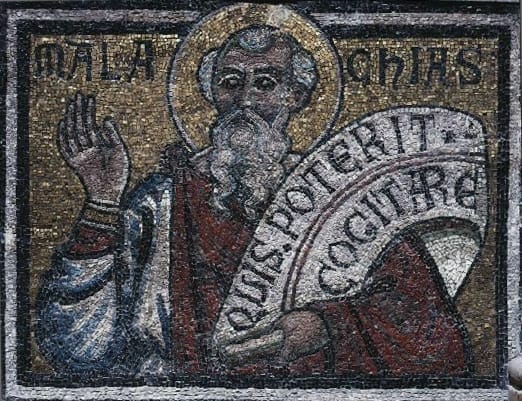Malachi: Judgement on Israel
My name will be great among the Gentiles.

Key words
- Doom: death, destruction, or any very bad situation that cannot be avoided
The newspapers are always full of doom and gloom.
- Unworthy: not deserving respect, admiration, or support
He felt unworthy because of his crimes.
- Sacrilege: the failure to treat something holy with the respect it should have
Muslims consider it sacrilege to wear shoes inside a mosque.
- Impending: used to refer to an unpleasant event that is going to happen soon
The impending war made everyone nervous.
- Pinpoint: to find out or say the exact position in space or time of something
We can use GPS to pinpoint his location.
Read the article to find the answers
- What did Malachi accuse Israel of?
- Who would be judged quickly?
- How does Malachi pinpoint the timing of the judgment?
- Who would be cursed?
Overview
The last book of the Old Testament, Malachi, is a message of doom for Israel. The Jews were told that they would be unworthy to receive the promised Kingdom of God if they continued to disobey God's commands. The Book of Malachi strongly accuses Israel of various wrongdoings, including sacrilege, apostasy, and blasphemy. Despite clear evidence of their wrongdoings, the people deny the accusations and claim innocence. They call evil good and good evil, and face impending judgment.
The great and terrible day of the Lord
"I will come to judge you. I will come quickly against those who do magic, cheat on their partners, lie under oath, mistreat workers, widows, orphans, and treat strangers unfairly."
"A day is coming that will be as hot as a furnace. All the proud and those who do wrong will be like dry grass, and that day will completely destroy them, leaving nothing behind", says the LORD.
Malachi pinpoints the timing of this impending judgement on the nation of Israel by stating:
Behold, I will send you Elijah the prophet before the coming of the great and terrible day of the Lord.
Jesus named John the Baptist as Elijah, and the Apostle Peter also reminded Israel of the impending "great and terrible day of the Lord" on the Day of Pentecost.
When Malachi said, "the Lord will come suddenly to His temple," he was warning Israel that God's final visit to the temple would be in judgment against the sacrilege, apostasy, and blasphemy of which the Jews were guilty.
The temple represented the covenant between God and His people. When Jesus told the religious leaders of Israel that it was desolate, He was indicating that "the day of His coming" would involve the simultaneous destruction of the temple, and the entire nation.
A cursed land
The primary focus of Malachi's prophecy is the return of Jesus, and with His return, the destruction of the nation. The final words of the prophecy warn Israel that if they do not stop sinning, "God will come and smite the land with a curse!"
This curse was on the land of Israel. The prophet's message was specifically to the sacrilegious people of Israel, and God's coming in judgment was to His temple in Israel. The devastation suffered by the Jewish nation when the temple in Jerusalem was destroyed in 70 A.D. can be seen as the fulfilment of this prophecy.
Discussion questions
- Do you have any questions about any of the vocabulary or grammar in this article?
- Do you know the Bible passage quoted at the top of this article?
- What do you know about the Jewish wars in the first century?
- What do you know about the destruction of Jerusalem in 70 A.D.?

Book a Lesson
Improve your English language communication skills by practicing with a qualified and experienced native speaker.





